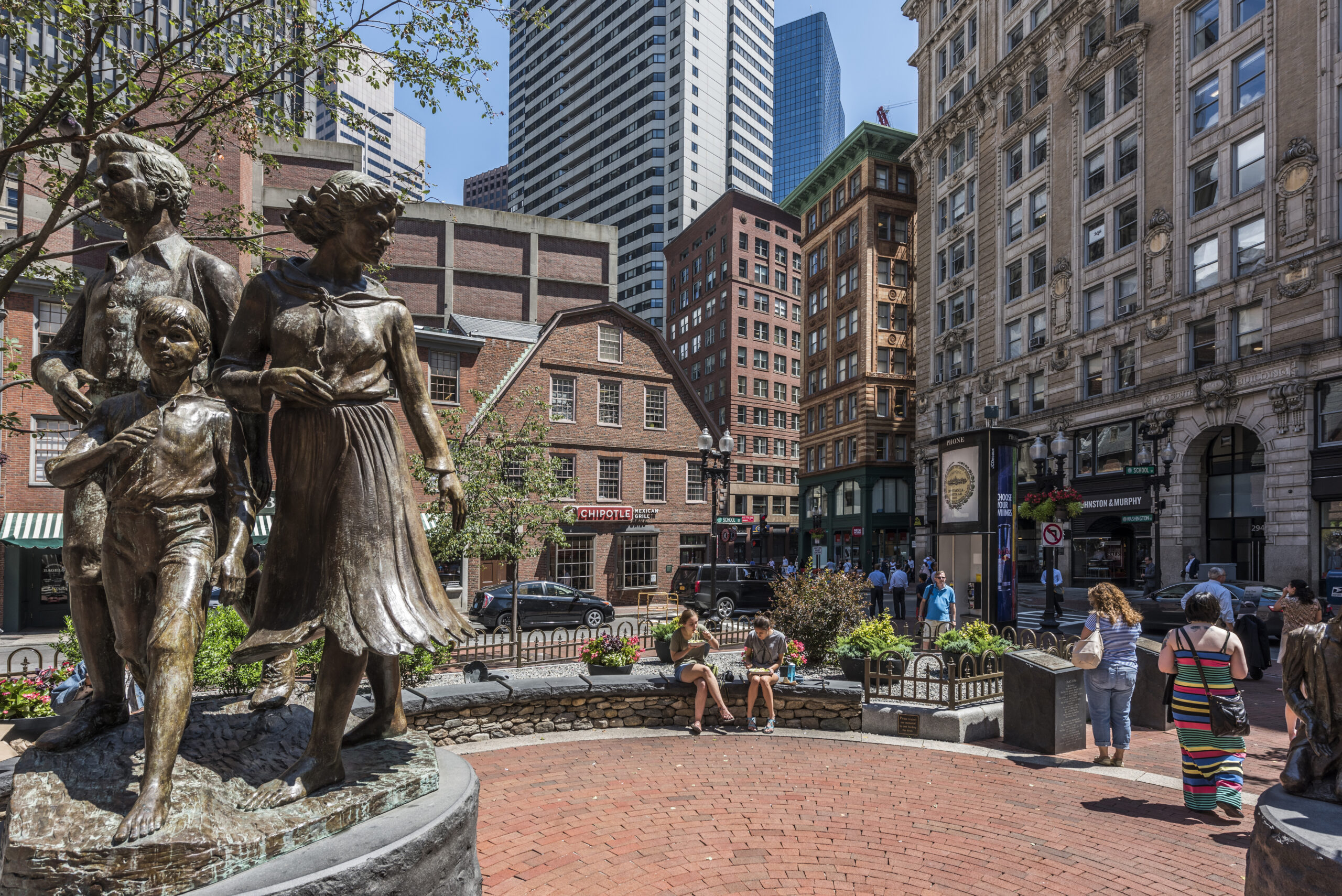
March 27, 2024 HBI explores geothermal possibilities with HEET
Historic Boston Inc. (HBI) and MASS Design Group recently met with the non-profit organization HEET, a climate solutions incubator in Boston with a mission to cut carbon emissions through systems change. As HBI plans a significant rehabilitation of the 1718 Old Corner Bookstore, we are considering possible ways of achieving carbon neutrality at the historic complex, one of the project’s major goals. HEET, led by Audrey Schulman and Zeyneb Magavi, has been successfully advocating for the installation of networked geothermal loops to begin to replace existing natural gas pipes as a way to heat and cool whole neighborhoods for sustainably. HBI is wondering if a networked geothermal loop could be feasible in our neighborhood in downtown Boston.
Geothermal energy is a way of extracting stored heat from the ground that is used to heat and cool buildings using heat pumps. It can be prohibitively expensive to install geothermal for an individual building, but that same individual building can get geothermal’s lower than gas monthly energy bills more efficiently and affordably if geothermal is installed as a utility network of water-filled pipes in a street. This geothermal utility can connect to multiple buildings as a way of replacing natural gas with heat and cooling made available to customers at affordable rates by spreading out the upfront costs over decades.
This short video shows how networked geothermal works:
One of the strong cases made by HEET for installing geothermal loops is that it would provide clean, renewable energy to whole neighborhoods. But another compelling reason is that existing gas pipes often leak, which is both unsafe and expensive to repair. And because natural gas is 90% methane, a potent greenhouse gas, these leaky pipes are contributing to climate change. So moving toward replacing Massachusetts’ very old gas pipe infrastructure with cleaner geothermal piping seems a logical step in transitioning away from fossil fuels and toward carbon neutrality, and the utility companies appear to support this idea, as does the City of Boston. Eversource and National Grid are installing demonstration installations of networked geothermal loops in Framingham and Lowell, and the City of Boston and National Grid recently announced plans to install a geothermal network to serve the Franklin Field Apartments as an initial step toward the City’s goal of decarbonizing public housing by 2030.
See HEET’s Annual Gas Leaks Map here.
While it’s too soon to know if it will be feasible to install a geothermal loop in our downtown Boston neighborhood that could connect to the Old Corner Bookstore and other interested neighbors, HBI will continue to explore that possibility. We think it would be an exciting way to demonstrate that Boston’s oldest buildings can innovate and lead the way to a greener future.



